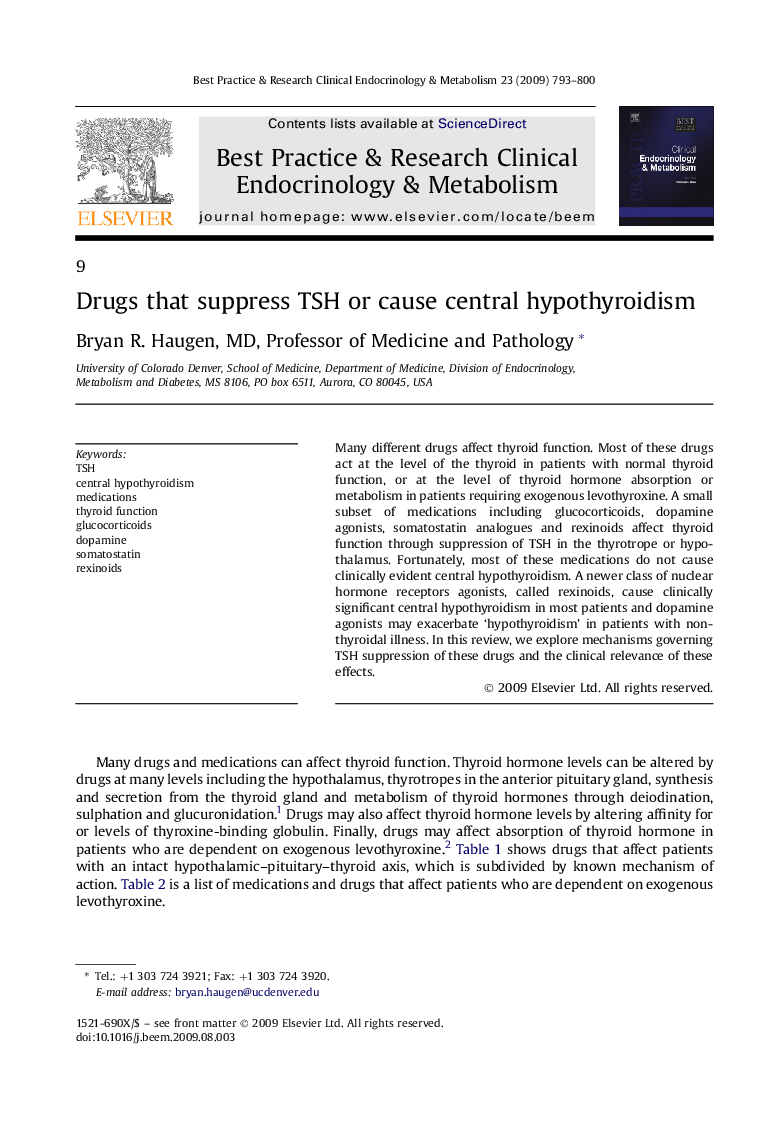| Article ID | Journal | Published Year | Pages | File Type |
|---|---|---|---|---|
| 2792154 | Best Practice & Research Clinical Endocrinology & Metabolism | 2009 | 8 Pages |
Many different drugs affect thyroid function. Most of these drugs act at the level of the thyroid in patients with normal thyroid function, or at the level of thyroid hormone absorption or metabolism in patients requiring exogenous levothyroxine. A small subset of medications including glucocorticoids, dopamine agonists, somatostatin analogues and rexinoids affect thyroid function through suppression of TSH in the thyrotrope or hypothalamus. Fortunately, most of these medications do not cause clinically evident central hypothyroidism. A newer class of nuclear hormone receptors agonists, called rexinoids, cause clinically significant central hypothyroidism in most patients and dopamine agonists may exacerbate ‘hypothyroidism’ in patients with non-thyroidal illness. In this review, we explore mechanisms governing TSH suppression of these drugs and the clinical relevance of these effects.
